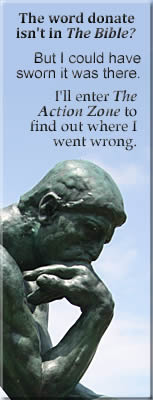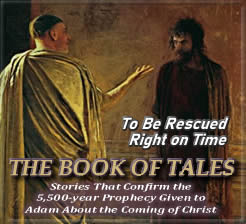The Mirror of Truth (Cont’d)
Betraying Our Own Cause
When we look in the mirror of truth, in those moments when we’re being perfectly honest with ourselves, what do we see but two faces staring back at us? No doubt this is the source of many a cartoon where we see an angel sitting on someone’s shoulder and a demon sitting on the other while the torn soul in the middle wrestles with the irrefutable logic of what’s being whispered into either ear.
The idea is as old as the story of the Garden of Eden. Eve gazed thoughtfully at the Forbidden Fruit in her hand, knowing full well she shouldn’t eat it. But right there in her ear was the voice of reason, whispering innocently: “Did God really mean what He said?”
Of course, we insist that, given the same opportunity, we’d have done things differently. We’d never make the same mistake she and Adam made—if given the chance, that is.
Story Continues Below
Says Richard Price—the founder and CEO of Academia.edu—on his podcast In Depth With Academia:
Fish Tales (From the Belly of the Whale): Fifty of the Greatest Misconceptions Ever Blamed on The Bible is:
To hear Price’s book review of Fish Tales (From the Belly of the Whale), CLICK HERE.
To hear Kent and Zen Garcia talk about correcting biblical misconceptions, from June 23rd, 2021, CLICK BELOW.
Story Continues From Above
So what did God do? He figured out how to call our bluff, so that every day and every hour, we are faced with the same dilemma. We’re faced with having to make a choice between the advice that we’re hearing in one ear or the other. “This is the right path.” “No, this is it.” “Are you sure God said to go this way?”
And sadly, because we’re all made of the same stuff as our first parents, we, who insist we’d do things differently, end up betraying our own cause, just as they did.
I’ve discovered this principle in life—that although I want to do what’s right, I inevitably do what’s wrong. I love God’s Law with all my heart, but there’s another power within me that’s at war with my mind.1
Yes, Satan, as the voice in one ear, does all he can to shipwreck our lives; and yes, God, as the voice in the other ear, does all He can to steer us clear. But guess what, folks? We’re still the only ones to blame for repeating the same mistakes that were made so long ago.
But all is not lost. Because in looking at this age-old drama, this inevitable chain of events doesn’t spell the end of us. In the hands of the eternal God of redemption, we find ourselves on a new path that teaches us something we could never have learned had we not failed so miserably to begin with. Thus, the end of ourselves, which seemed like such a tragedy at first, actually winds up acting as the prelude for a transformation of biblical proportions.
It’s to just such a journey of discovery, then, that I invite all those who’ve ever asked the same questions that I have: What makes The Bible so easy to misinterpret? What forces conspire against us to complicate matters? And what can we do to counteract those forces in order to lay hold of the truth that’s literally staring us in the face?








